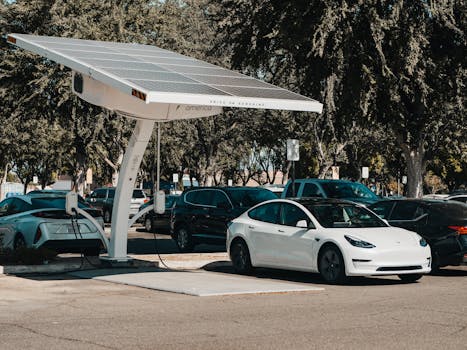
**
Trump's Tesla Attack: Renewed Calls to Slash Electric Vehicle Subsidies Ignite Debate
The 2024 presidential race is heating up, and with it, the debate over government support for electric vehicles (EVs). Former President Donald Trump has once again targeted Tesla and the broader EV industry, renewing his calls to eliminate or drastically slash federal subsidies. This move, announced during a recent rally, has reignited a contentious discussion surrounding taxpayer funding for green technologies, clean energy initiatives, and the future of the American automotive industry. The implications extend beyond Tesla, impacting the entire EV ecosystem and the broader renewable energy sector.
Trump's Stance on EV Subsidies: A History of Criticism
Trump's opposition to EV subsidies isn't new. Throughout his presidency, he expressed skepticism towards government intervention in the automotive market, frequently favoring traditional gasoline-powered vehicles. His argument consistently centers on the idea that Tesla and other EV manufacturers don't need government assistance, suggesting they are already successful and profitable entities. He often cites Tesla's market capitalization as evidence of the company's financial strength, overlooking the significant research and development costs associated with EV technology and the need for market incentives to encourage widespread adoption.
This recent reiteration of his stance comes at a time when the Biden administration is actively promoting EV adoption through various tax credits and incentives, part of a broader strategy to combat climate change and reduce reliance on fossil fuels. The contrast between the two administrations' approaches underscores a key ideological divide in American politics.
The Impact on Tesla and the EV Market
Tesla, while currently a market leader in EVs, isn't immune to the potential fallout from a reduction or elimination of government subsidies. While the company’s profitability has grown significantly, these incentives play a crucial role in making electric vehicles more affordable for consumers, thus driving demand and accelerating market growth. A sudden withdrawal of these subsidies could:
- Reduce consumer demand: Higher prices could deter potential buyers, particularly those on tighter budgets.
- Slow down EV adoption: The transition to electric vehicles is already facing numerous challenges, including charging infrastructure limitations and range anxiety. Removing subsidies would exacerbate these difficulties.
- Impact Tesla's growth trajectory: Although Tesla is financially robust, reduced subsidies could affect its expansion plans, particularly in markets heavily reliant on government incentives.
Beyond Tesla: The Broader Implications for the EV Industry
The impact of slashing EV subsidies extends far beyond Tesla. Numerous other EV manufacturers, both established automakers and startups, are heavily reliant on government incentives to compete effectively with gasoline-powered vehicles. A dramatic reduction in subsidies would disproportionately affect smaller companies with limited resources, potentially leading to:
- Industry consolidation: Larger players might acquire struggling startups, further concentrating market power.
- Job losses: The EV industry is a significant source of employment, encompassing manufacturing, research, development, and sales. Reduced subsidies could jeopardize thousands of jobs across the supply chain.
- Slower progress towards climate goals: Reducing incentives for EVs could hinder the progress towards achieving national climate change goals, including reducing carbon emissions and improving air quality.
The Political Landscape and the Future of EV Subsidies
Trump's renewed attack on EV subsidies highlights the deeply polarized political climate surrounding the future of clean energy and automotive technology. While his arguments resonate with a segment of the population skeptical of government intervention, counterarguments emphasize the long-term economic and environmental benefits of supporting the transition to sustainable transportation.
The debate will likely continue to intensify as the 2024 election approaches. The outcome will significantly influence the trajectory of the EV industry and the overall direction of America’s climate change policy. The debate encompasses:
- Economic efficiency: Arguments for subsidies emphasize the long-term economic benefits of fostering a domestic EV industry and reducing dependence on foreign oil.
- Environmental impact: Proponents of subsidies highlight the crucial role of EVs in reducing greenhouse gas emissions and improving air quality.
- Energy independence: The shift to EVs contributes to energy independence by reducing reliance on foreign oil.
Conclusion: A Crucial Debate for America's Future
Trump's call to slash Tesla subsidies is more than just a political attack; it's a central piece in a broader national conversation about the future of transportation, energy independence, and environmental responsibility. The outcome of this debate will have far-reaching consequences for the American economy, the environment, and the global race towards sustainable transportation solutions. The debate will continue to evolve, demanding careful consideration from policymakers, industry leaders, and the public alike. Understanding the intricate economic and environmental factors involved is crucial to forming informed opinions and making sound decisions for the future.



















